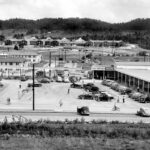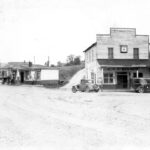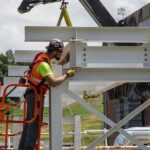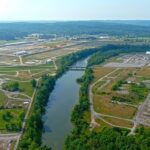Note: This story was updated at 12:35 p.m.
In his first visit to Oak Ridge, House Majority Leader Eric Cantor paid tribute to the national security and science work that has occurred here dating back to World War II, called for a continued emphasis on research and discovery, and touched on political topics including the controversial Keystone XL oil pipeline, unemployment, and the nationŌĆÖs social safety net.
A Virginia Republican, Cantor said the U.S. House of Representatives last week passed the Northern Route Approval Act, allowing the Keystone XL pipeline to be completed. The bill declares that a presidential permit is not required to approve the section of the pipeline from Alberta to Nebraska, which crosses a national border.
The pipeline, supported by the petroleum industry but opposed by environmentalists, would carry heavy crude oil from CanadaŌĆÖs oil sands region to refineries on the U.S. Gulf Coast.
The House legislation still has to pass the Senate, which is controlled by Democrats, and President Barack Obama has promised to veto the bill, according to Reuters. Cantor said the legislation has bipartisan support, and he hopes Obama will join the effort because the pipeline would provide jobs, lower energy costs, and help establish energy independence, ensure overall competitiveness, and reignite the economy.
Cantor gave a roughly 20-minute speech at the two-day Tennessee Valley Corridor National Summit at the Y-12 National Security Complex.
The majority leader paid tribute to the Manhattan Project work that occurred in Oak Ridge during World War II, when the United States built the worldŌĆÖs first atomic bombs, and the nuclear weapons manufacturing work that ŌĆ£helped break the Soviet UnionŌĆØ during the Cold War.
Cantor also cited other accomplishments, including Oak RidgeŌĆÖs contributions to nuclear medicine. Federal policy makers should place a priority on research and discovery, Cantor said.
ŌĆ£My message to you right away is to keep it up,ŌĆØ he told several hundred people at Y-12ŌĆÖs New Hope Center. ŌĆ£To me, it means that continued success of this corridor is not only possible, it is necessary.ŌĆØ
Advocating for an America that ŌĆ£dreams big,ŌĆØ Cantor said WashingtonŌĆÖs job is to keep gridlock from interfering with progress.
In a brief discussion of energy security, Cantor said the political extremism that rages in the Middle East is a reminder that ŌĆ£we have got to stop turning our back on the indigenous resources that we have here at home.ŌĆØ
Turning to jobs, Cantor said nearly 12 million Americans are unemployed, and millions more have stopped looking for work. Meanwhile, there are hundreds of thousands of jobs that are unfilled due to a lack of workers with the right skills.
Cantor said he and summit host U.S. Rep. Chuck Fleischmann, a Tennessee Republican, voted for a Skills Act in March that would eliminate waste and duplication in worker training programs and help Americans get back to work and find careers in ŌĆ£forward-looking places like the corridor.ŌĆØ
Citing the potential collapse of programs such as Social Security and Medicare, Cantor advocated for entitlement reforms that he said could save the programs, and he said he and Fleischmann and others are waiting for signals from the Obama administration that they are willing to work together.
Though Washington appears to many Americans to be stuck in a state of perpetual gridlock, Cantor recalled high points of American history, ranging from the nationŌĆÖs founding to the opening of the Space Age, to urge summit participants to dream big.
ŌĆ£America has always been bold with big dreams,ŌĆØ Cantor said. ŌĆ£As a country, we are strongest when we believe not in ŌĆśbig government,ŌĆÖ but in a ŌĆśbig America.ŌĆÖŌĆØ
The summit, which started Wednesday, also featured U.S. senators Bob Corker and Lamar Alexander, and U.S. Department of Energy and National Nuclear Security Administration officials, among others.













Leave a Reply